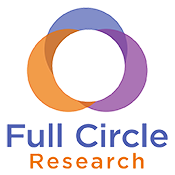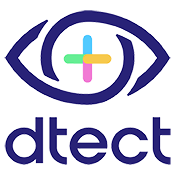Stay connected
Be the first to know about new programs, upcoming events, or other exciting opportunities happening at the University of Georgia by joining our mailing list.
Discover the power of market research.
Free archived webinars: practical insights, real-world impact.
About this course
What you’ll learn
The three topics covered in the Data Analytics 1-2-3 are:
Working with Secondary Data: Syndicated and Big Data.This course introduces the many secondary data sources available to you. You will learn about the value and challenges you might encounter when linking primary and secondary data, and gain insights into the “big data” world in which businesses now operate.
Introduction to Data Analysis. This course will introduce you to the critical concepts common to the analysis of quantitative research data, with special attention to survey data analysis. These concepts will help analysts, buyers of research services, and those designing research. Knowing how best to look at data and derive insights is critical to ensuring that the information has a positive impact on the business decision that needs to be made. You will learn how to examine your data, prepare it for analysis, select the most appropriate statistical methods, and develop an analysis plan.
Advanced Analytic Techniques. In this course, you will learn about some of the more advanced statistical methods you may encounter as a researcher, with greater attention to techniques that are frequently used with secondary data. Topics include: conjoint analysis, multiple regression, cluster analysis for segmentation, linear regression, perceptual mapping and factor analysis. You are not expected to memorize complicated formulas; rather, this course teaches the principles behind commonly used advanced statistical methods and when to use them.

Who should attend?
- Entry-level researchers looking for a solid introduction to quantitative data analysis.
- Mid-level staff seeking to expand their skillsets.
- Experienced researchers looking to catch up with the latest developments, especially the expanded use of secondary data.
- Corporations seeking professional development options for their internal training portfolio.
- Suppliers of research seeking courses for new-employee onboarding.
- Researchers who lead or contribute to project design, particularly those around secondary data.
- Researchers interested in understanding the important role that syndicated data can play in research design and execution.
- Analysts needing to understand how best to analyze quantitative data, and the pitfalls to avoid.
- Analysts needing to understand what secondary data sources exist and where to find them.
- Client-side researchers responsible for designing research and ensuring that the analysis leads to reliable insights.
- Client-side researchers interested in understanding how to leverage data their companies may already possess.
- People just entering the research field who want a deeper understanding of the research process.
Continuing Education Information
Students successfully completing graded components earn a Digital Badge (Opens in a new window) (issued the month following your course completion.
The University of Georgia will award 3.6 Continuing Education Units (Opens in a new window) (CEU) from The University of Georgia.
You will also earn a Certificate of Program Completion awarded by Market Research Institute International (Opens in a new window) (MRII), IA, ESOMAR and the University of Georgia.
As a graduate of the course you will be recognized by industry associations, employers, peer groups and other professionals as having broad knowledge of both the basic and advanced analytic techniques that comprise the modern market researcher’s tool kit, and with a firm grasp of when and how to use them. You also will better understand the broad landscape of existing data—both syndicated and big data—as alternatives to or supplements of survey data collection. This recognition will help you advance in your company and the industry.

CAIP Canada (Opens in a new window) also recommends the course for candidates looking to fill in the gaps or gain a refresher in specific areas.
What experience is suggested for the Analytics 1-2-3 course?
You should be familiar with:
- Weighting (which is covered in a separate Course, Sampling in Market Research)
- Research Design (which is covered in a separate Course, Market Research Design and Data Identification)
- Sampling and sampling error (which is covered in a separate Course, Sampling in Market Research)
- Types of data variables (which is covered in a separate Course, Measurement and Questionnaire Design)
Requirements & policies
Schedule
Enroll at any time and complete the course’s required graded components within 90 days.
Fees & funding information
$989 – Standard Fee
$859 – Association Discount (Members* of: Insights Association; ESOMAR; Canadian Research Insights Council, The Research Society, Intellus Worldwide, QRCA, AMAI, WAPOR-Latinoamérica, MRII Board of Directors, UGA MMR Advisory Board.)
$50 – One-Month Extension (only one extension is granted per participant)
*Membership will be verified.
Prepayment is required to be registered. The prices listed are per person (US Funds).
Cancellation or refund
We will issue a refund, minus a $100 processing fee, if you have not accessed the online course. All cancellation and refund requests must be sent via email to gc-student@uga.edu no later than seven (7) days after your course access information is issued.

Technology
Take advantage of the different features (PDF files, URLs/links to external websites, animated exercises, audio and video clips) you should use a browser such as Chrome (Opens in a new window), Firefox (Opens in a new window), Microsoft Edge (Opens in a new window), or Safari (Opens in a new window) and a fast internet connection provide the best experience. The online platform supports many popular web browser versions. To find out if your computer’s current software configuration is compatible, see System & Software Requirements (Opens in a new window).
Prerequisites
There are no prerequisites for enrolling in Analytics 1-2-3. However, the course assumes some knowledge of basic research design and quantitative research practices.
Enrollees might also consider one of more of the following: Introduction to Market Research, Market Research Design and Data Identification; Sampling in Market Research; Quantitative Data Collection Methods; and Measurement and Questionnaire Design.
Textbooks
Suggested (not required)
- Malhotra, Naresh K., Essentials of Marketing Research: A Hands-On Orientation, Pearson Education: Upper Saddle River, NJ. ISBN-13: 978-0-13-340182-0 (digital subscription edition)
- Chakrapani, Chuck, Analytics for Customer Insights: A Non-Technical Introduction. ©2018. ISBN: 978-0-920219-52-2 (print version recommended) or ISBN 978-0-920219-52-2 (eBook).
Included in the online course are suggested reading assignments from the above textbooks. These readings are not required content and will not be part of the testing for the course. The textbook suggestions are simply intended to add additional depth to your understanding of the topic.
People & organizations
Authors
Ray Poynter – Managing Director, The Future Place and Founder, NewMR
Ray is the author of The Handbook of Mobile Market Research, The Handbook of Online and Social Media Research and the #IPASOCIALWORKS Guide to Measuring Not Counting. He is the founder of NewMR.org, editor of the ESOMAR book Answers to Contemporary Market Research Questions, and is the Managing Director of The Future Place, a UK-based consultancy, specializing in training.
Ray has spent the last 35 years at the intersection of innovation, technology, and market research, during which time Ray has held director level positions with Vision Critical, Virtual Surveys, The Research Business, Millward Brown, Sandpiper and IntelliQuest.

Bill Bean – Principal, Bean and Associates Consulting
Bill is a senior marketing executive specializing in research and analytics. He has founded shopper insights practices at four Fortune 500 consumer goods companies, conducted research in over 20 countries worldwide, and pioneered many applications of advanced analytics techniques to assess marketing performance. He served on the advisory board for the University of Wisconsin A.C. Nielsen Center for Market Research for ten years as well as a trustee of the Marketing Science Institute

Supporting associations
Founding Organizations
Proud Corporate Sponsors of MRII
 (Opens in a new window)
(Opens in a new window) (Opens in a new window)
(Opens in a new window) (Opens in a new window)
(Opens in a new window) (Opens in a new window)
(Opens in a new window) (Opens in a new window)
(Opens in a new window)
 (Opens in a new window)
(Opens in a new window) (Opens in a new window)
(Opens in a new window) (Opens in a new window)
(Opens in a new window) (Opens in a new window)
(Opens in a new window) (Opens in a new window)
(Opens in a new window) (Opens in a new window)
(Opens in a new window) (Opens in a new window)
(Opens in a new window) (Opens in a new window)
(Opens in a new window) (Opens in a new window)
(Opens in a new window) (Opens in a new window)
(Opens in a new window) (Opens in a new window)
(Opens in a new window) (Opens in a new window)
(Opens in a new window) (Opens in a new window)
(Opens in a new window) (Opens in a new window)
(Opens in a new window) (Opens in a new window)
(Opens in a new window) (Opens in a new window)
(Opens in a new window) (Opens in a new window)
(Opens in a new window) (Opens in a new window)
(Opens in a new window)Supporting Organizations
Prices, course details, dates, and times are subject to change.
Contact us + FAQs
FAQs
View the most frequent questions asked by our learners
Financial and Military Assistance
Find out which programs are eligible for assistance
Accommodations
View our accommodation policy
















